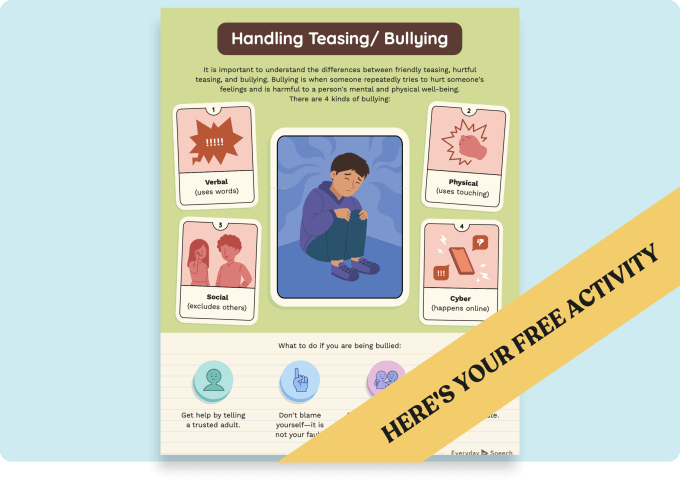Effective IEP Goals for Gaining Someone’s Attention in Special Education
Get free social skills materials
No-prep lessons on self-regulation, emotional recognition, conversation skills, and more.
Sign up hereDownload 50+ Example IEP Goals
Customizable library of strengths-based goals
In special education, it’s vital that educators create Individualized Education Programs (IEPs) that address specific skills to support students’ learning, social interactions, and wellbeing. One such skill is gaining someone’s attention, which is crucial in helping students communicate effectively and maintain healthy relationships.
Understanding Gaining Someone’s Attention
Gaining someone’s attention is the ability to get another person to focus on us before initiating a conversation or asking a question. This skill is essential for students as it ensures that the listener is ready to engage and understand the speaker’s message. When students can successfully gain someone’s attention, they can better participate in classroom discussions, collaborate with peers, and develop strong social connections.
The Role of Specialists
Various specialists can support the development of the target skill in students:
- Speech-Language Pathologists: They can help students improve their verbal and non-verbal communication skills to effectively gain someone’s attention.
- Social Workers: They can teach students appropriate social behaviors and strategies to gain attention in various situations.
- Psychologists: They can help students understand the importance of gaining someone’s attention and address any underlying emotional or behavioral issues that may hinder this skill.
- School Counselors: They can provide guidance and support to students in developing and practicing the target skill within the school environment.
IEP Goals for Gaining Someone’s Attention
Here are some specific SMART IEP goals for improving the target skill in students:
- Goal: The student will gain someone’s attention by maintaining appropriate personal space, using proper body language, and addressing the person by name or using a polite phrase.
- Strategies/Activities: Role-playing, visual aids, social stories, and practicing the “Conversation Stoplight” technique.
- Goal: The student will wait patiently for their turn to talk when someone is busy, without interrupting or displaying inappropriate behaviors.
- Strategies/Activities: Social stories, modeling appropriate waiting behaviors, and providing reinforcement for successful waiting.
Implementing and Measuring Progress
To implement these IEP goals, educators can collaborate with specialists, provide consistent practice opportunities, and offer positive reinforcement. Progress can be measured through observation, data collection, and feedback from students, parents, and other professionals.
Conclusion
Incorporating the target skill of gaining someone’s attention in IEPs is essential for students’ success in special education. By implementing the suggested goals and strategies, educators can help students develop effective communication skills and foster positive social interactions. For more resources, explore Everyday Speech Sample Materials.



